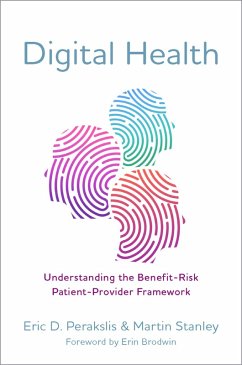Digital health represents the fastest growing sector of healthcare. From internet-connected wearable sensors to diagnostics tests and disease treatments, it is often touted as the revolution set to solve the imperfections in healthcare delivery worldwide. While the health value of digital health technology includes greater convenience, more personalized treatments, and more accurate data capture of fitness and wellness, these devices also carry the concurrent risks of technological crime and abuses pervasive to cyber space. Even today, the medical world has been slow to respond to these emerging risks, despite the growing permanence of digital health technology within daily medical practice. With over 30 years of joint experience across the medical and cybersecurity industries, Eric D. Perakslis and Martin Stanley provide in this volume the first reference framework for the benefits and risks of digital health technologies in practice. Drawing on expert interviews, original research, and personal storytelling, they explore the theory, science, and mathematics behind the benefits, risks, and values of emerging digital technologies in healthcare. Moving from an overview of biomedical product regulation and the evolution of digital technologies in healthcare, Perakslis and Stanley propose from their research a set of ten categories of digital side effects, or "toxicities," that must be managed for digital health technology to realize its promise. These ten toxicities consist of adversary-driven threats to privacy such as physical security, cybersecurity, medical misinformation, and charlatanism, and non-adversary-driven threats such as deregulation, cyberchondria, over-diagnosis/over-treatment, user error, and financial toxicity. By arming readers with the knowledge to mitigate digital health harms, Digital Health empowers health practitioners, patients, and technology providers to move beyond fear of the unknown and embrace the full potential of digital health technology, paving the way for more conscientious digital technology use of the future.
Dieser Download kann aus rechtlichen Gründen nur mit Rechnungsadresse in A, B, BG, CY, CZ, D, DK, EW, E, FIN, F, GR, HR, H, IRL, I, LT, L, LR, M, NL, PL, P, R, S, SLO, SK ausgeliefert werden.









